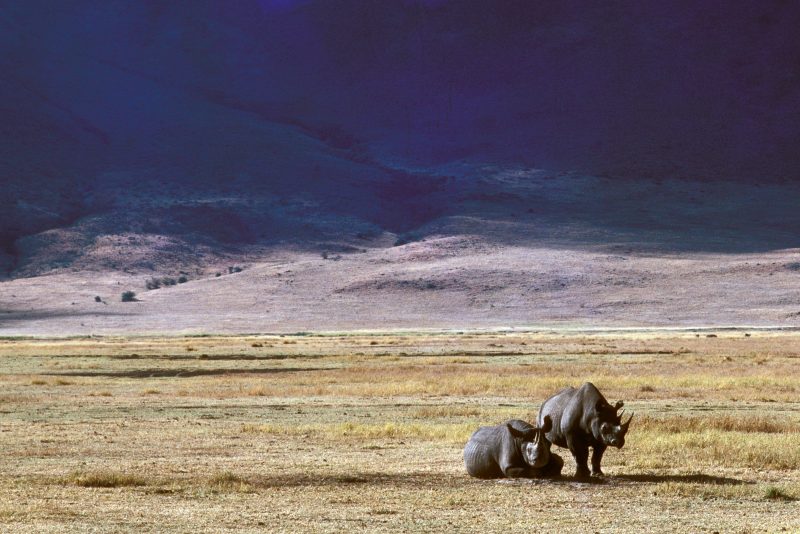Economics versus biodiversity?
The Dasgupta Review is here - and if implemented, it could have a revolutionary impact on our planetary future. But that's a big "if"

The GEC Insights series is a curated collection of online articles at the intersection of environment and economics, each written by leading thinkers from the worlds of business, government and civil society. Part of our Economics for Nature project, they bring together diverse perspectives to answer the question: how can we re-design our economies to protect and restore nature?
The Government has just published the final report from the Dasgupta Review of the economics of biodiversity. If its proposals are ever implemented, they would have a huge impact on the prospects for our planet. However there are serious reasons for believing this is not going to happen – despite the fact that the online launch included endorsements from Prince Charles, Boris Johnson, and David Attenborough. What more could you want for a report?
It is fair to mention first that this final report is a big improvement on the interim report from the Review, published last year. I have criticised that elsewhere but some of the main criticisms no longer apply. The Review has given up its previous misleading ideas on how to measure biodiversity, and although the problematic scheme for valuing nature in monetary terms is still there, that hasn’t prevented the Report from including a lot of good policy suggestions not at all derived from that approach. It also goes further than the interim report in acknowledging perspectives on the natural world which are not based in economics.
The most striking thing about this report is how little space is given to recommendations. Most government documents, including advisory ones, are principally about recommendations, in most cases set out at the start as an “executive summary”, and then argued for, put in bold type and set out in more detail in the main text. Journalists and politicians habitually focus on these (and don’t bother to read anything else).
Sir Partha Dasgupta’s report, however, is about the economics of biodiversity, principally meaning the economic theory. In a report which goes up to page 500 (excluding glossary and references), “Options for Change” only start on page 485. This helps to explain why the launch event on Tuesday did not address audience questions like “what do you want to see in next month’s Budget?”
That may not, of course, be Dasgupta’s fault. I have no inside knowledge of this, but it is conceivable that the Government wanted to claim credit internationally for commissioning and publishing this review, but wanted to take the credit for it without the embarrassment of having to respond to specific recommendations about what it should actually do.
“ Politicians are willing to let economists produce their theories and analyses but remain very cautious about anything like implementation, especially when there are other lobbies pressing for their attention.”
This is particularly likely to be the case when the UK has been failing to achieve most of its own biodiversity targets, is replacing EU Commission enforcement of environmental standards with a weak Office for Environmental Protection, is pressing ahead with HS2 and a massive road building programme, and is pursuing a trade deal with the USA which may well result in the undermining of UK food and farming standards (whilst in their rejection of Lords’ amendments to the Trade Bill continuing to prevent parliamentary control over trade deals).
So although the Report has a wide range of policy proposals, these are not presented in such a way as to put the Government on the spot about what it should actually be doing in the near future – in the Budget, the Environment Bill, the Trade Bill, corporate reporting requirements, any post-pandemic recovery package, or anything else.

The other main problem (apart from all the philosophical and practical issues about monetary valuation: see other articles on this site) is that we have been here before. Most of the ideas in the Review have been around for years. The monetary valuation proposals for measuring what is conceptualised as “natural capital” are essentially the same as those in the Pearce Report (1989) and the TEEB reports (the main one was in 2010). What those reports suggested stayed in the realm of economic theory.
This is because as soon as you start to contemplate the practical consequences of the theory, you find that it involves major changes which many people and companies will find unwelcome. Taxpayers in the West would have to pay billions of pounds to tropical countries for maintaining their rainforests. Meat and dairy products, air flights and motoring, all become more expensive. Some jobs would disappear, requiring retraining for the new jobs that would replace them. Politicians are willing to let economists produce their theories and analyses but remain very cautious about anything like implementation, especially when there are other lobbies pressing for their attention.
This takes us to the limit of what science and economics can achieve: the next stage of the effort to protect biodiversity has to be political.
- Victor Anderson
This article originally appeared on Victor Anderon's personal website. It is republished with permission.


